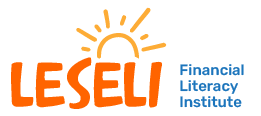

In our modern society, addiction is often associated with substances like drugs or alcohol. However, there exists another form of addiction that is less discussed but equally damaging—financial addiction. This addiction manifests through various bad financial habits and can lead to significant financial strain and personal distress.
The Nature of Financial Addiction: Financial addiction shares many similarities with traditional substance addictions. At its core, it involves compulsive behaviors that individuals engage in despite negative consequences. Just like substance addiction, financial addiction triggers pleasure centers in the brain, leading to a cycle of craving, pleasure, and guilt.
Common Bad Financial Habits Linked to Addiction
Impulse Spending: Similar to impulse control disorders, individuals struggling with financial addiction often find themselves unable to resist the urge to spend money on unnecessary items or experiences.
Compulsive Gambling: Gambling addiction is a well-known form of behavioral addiction, where individuals repeatedly engage in gambling activities despite adverse consequences. This can lead to severe financial losses and debt.
Excessive Borrowing: Constantly relying on loans, credit cards, or payday advances to sustain a lifestyle beyond one’s means is another symbol of financial addiction. The temporary relief provided by borrowed funds perpetuates the cycle of addiction.
Living Beyond Means: Many individuals with financial addiction engage in a lifestyle characterized by excessive consumption and materialism, driven by the need for instant satisfaction and validation by others.
The Consequences of Financial Addiction:
Financial addiction can have devastating effects on individuals, families, and communities. It often leads to:
Mounting Debt: Continuous overspending and borrowing result in unsustainable levels of debt, leading to financial instability and stress.
Strained Relationships: Financial addiction strains relationships as individuals prioritize their addictive behaviors over their responsibilities to loved ones.
Mental Health Issues: The constant cycle of indulgence and guilt can lead to anxiety, depression, and other mental health disorders.
Legal Troubles: In extreme cases, financial addiction may lead to legal issues such as bankruptcy, foreclosure, or involvement in criminal activities to sustain the addiction.
Breaking the Cycle: Overcoming financial addiction requires a multifaceted approach involving self-awareness, education, and behavioral change. Strategies may include.
- Seeking professional help from financial advisors or counselors specializing in addiction therapy.
- Developing a budget and sticking to it to regain control over spending habits.
- Building healthier coping mechanisms to deal with stress and emotional triggers.
- Cultivating a support network of friends and family who can provide encouragement and accountability.
Recognizing and addressing financial addiction is crucial for individuals to regain control of their lives and achieve financial stability. By understanding the link between bad financial habits and addiction, we can work towards breaking the cycle and building a healthier relationship with money. With determination and support, it is possible to overcome financial addiction and pave the way towards a more fulfilling and prosperous future.
